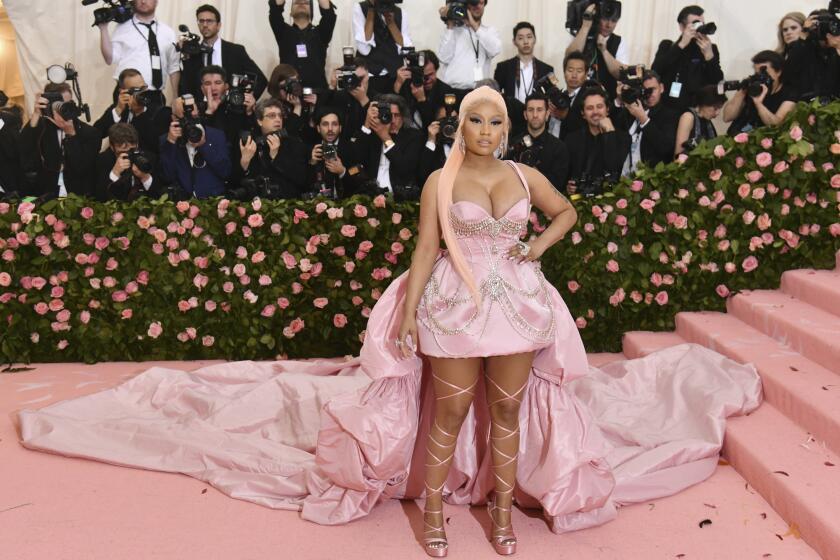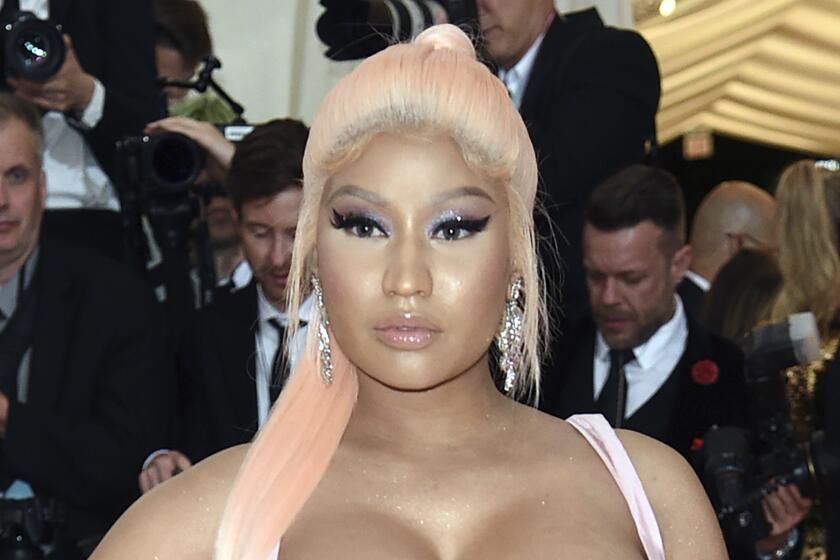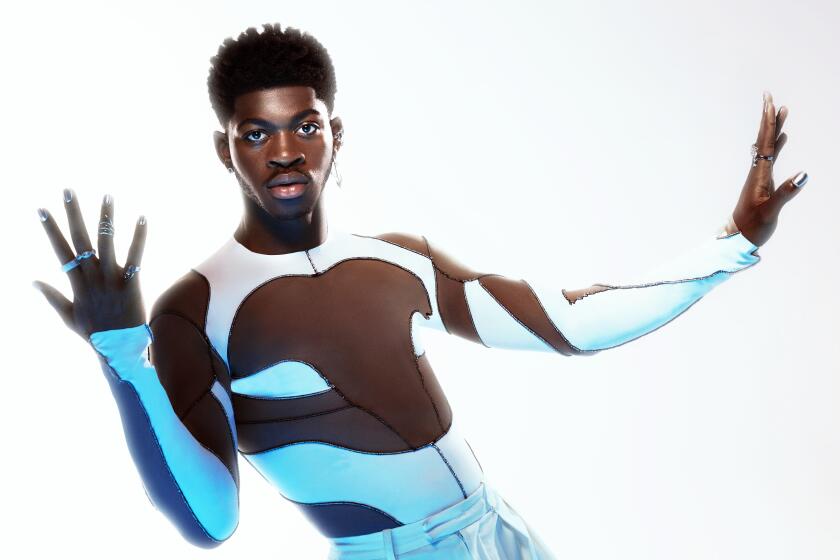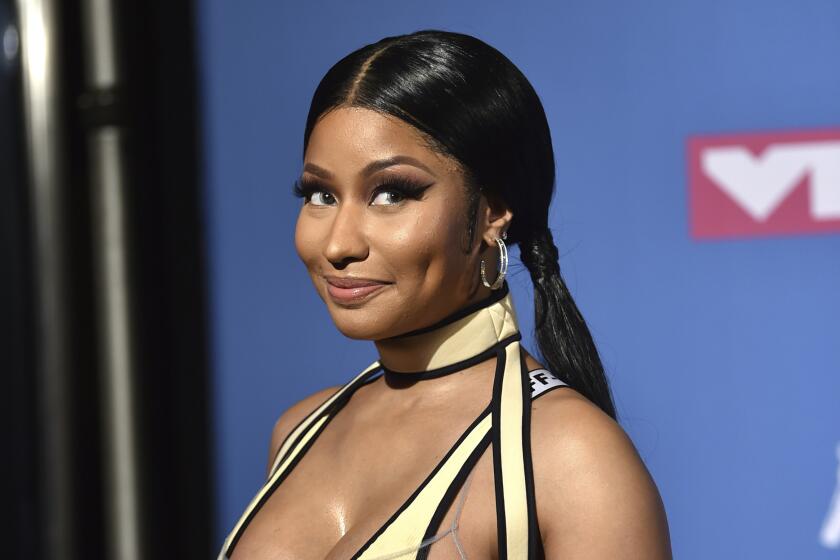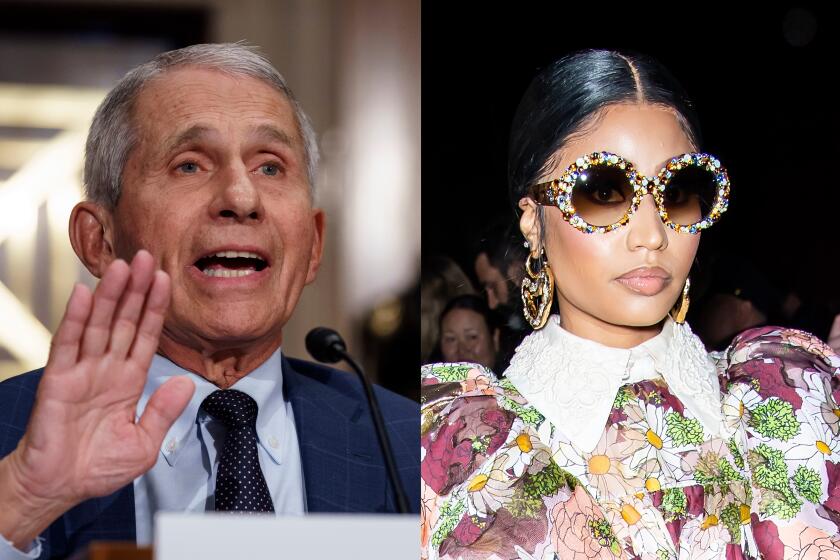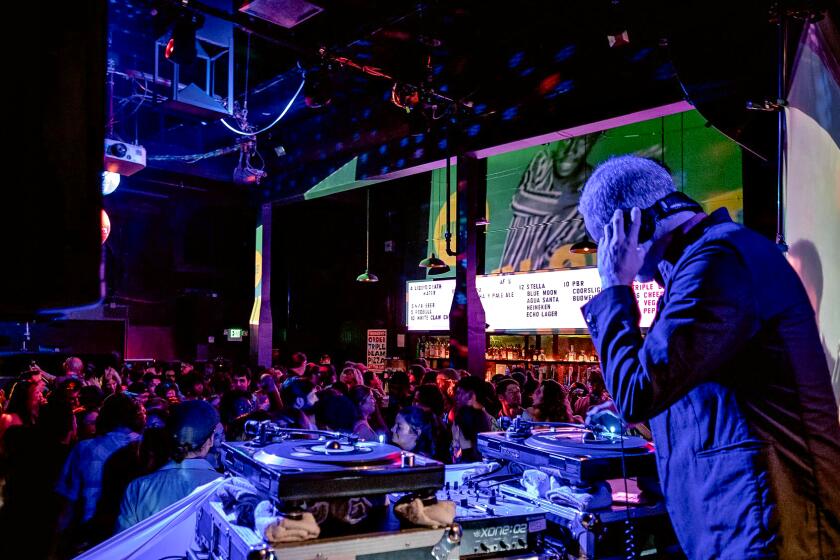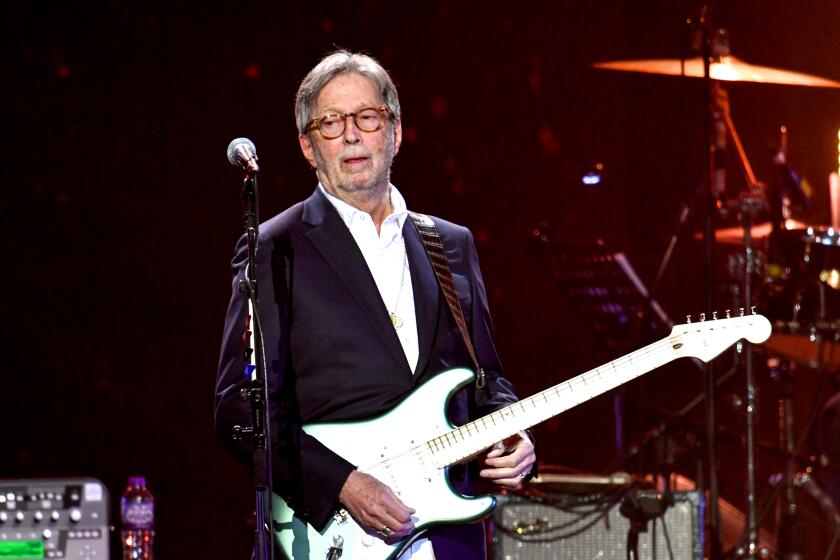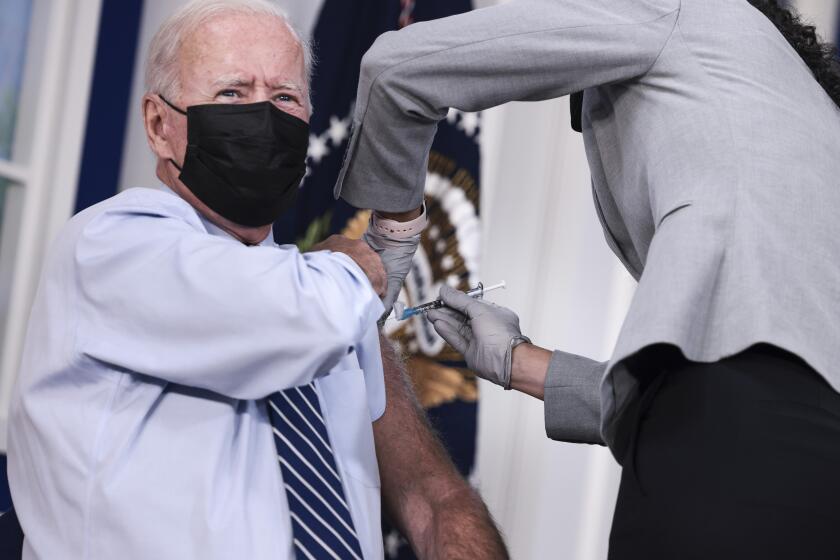For hip-hop and Black communities, Nicki Minaj’s ‘BallGate’ is no laughing matter
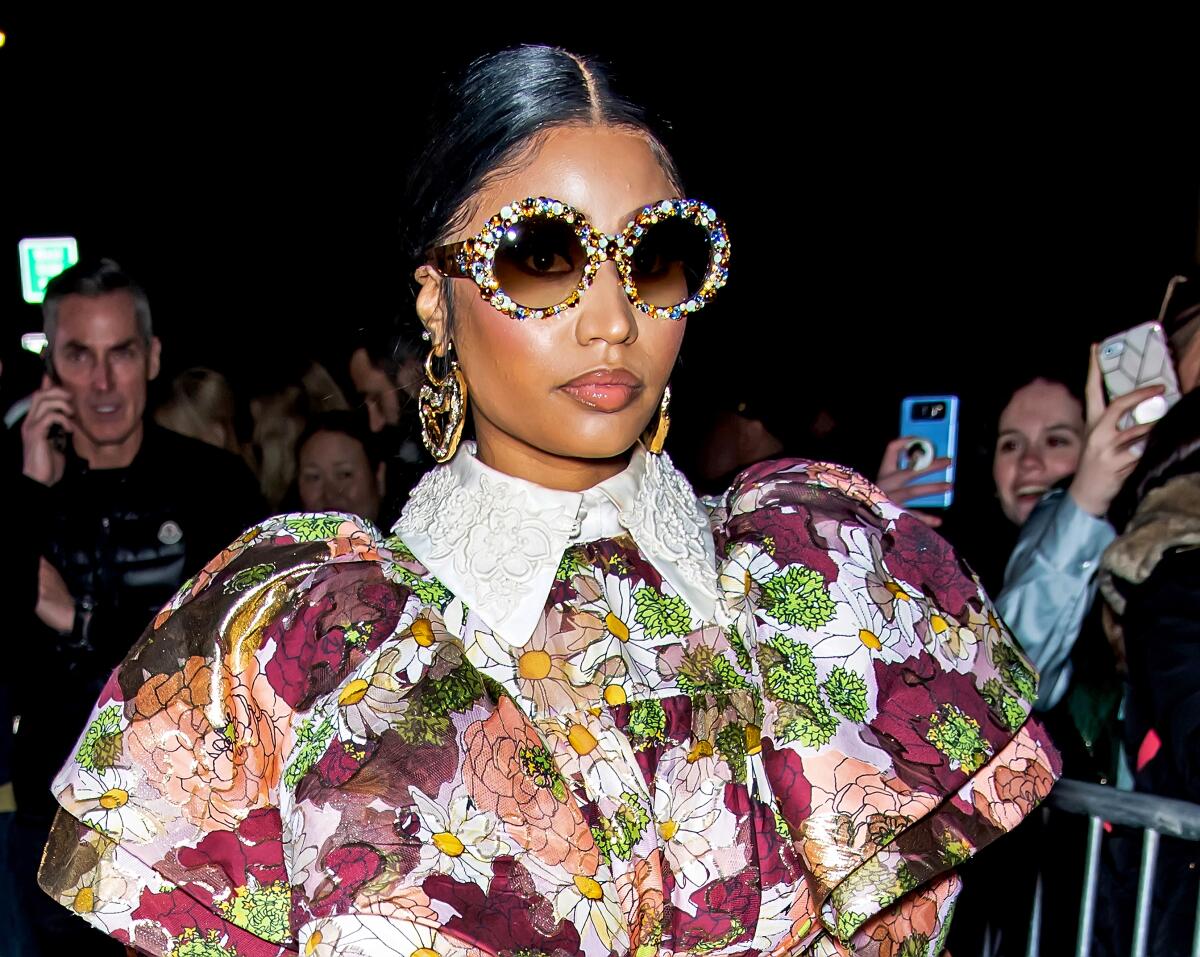
It started with a seemingly innocuous post on social media. It ended up shining a light on hip-hop’s complicated relationship with the COVID-19 vaccine.
On Sept. 13, rapper Nicki Minaj announced on Twitter that she would not be attending the famed Met Gala due to a requirement that guests must show proof of vaccination amid the COVID-19 pandemic.
“If I get vaccinated it won’t [be] for the Met,” she told her 22.8 million followers. “It’ll be once I feel I’ve done enough research.”
Some observers pressed Minaj on just how much more “research” needed to be done when, according to the Centers for Disease Control and Prevention, data shows that all three COVID vaccines have proved to be safe and effective in blocking severe sickness and death, even against the more communicable Delta variant.
Rapper Nicki Minaj voiced her vaccine hesitancy in response to the Met Gala’s jab requirement and in doing so opened up a bizarre can of worms.
A New York Times report estimated that breakthrough cases for people who have been vaccinated are relatively small: 1 in 5,000. And the risk of hospitalization from COVID-19 after vaccination is a minuscule 5 in 100,000. Meanwhile, studies have found that unvaccinated people are five times as likely to get COVID-19. To date, according to the CDC, more than 680,000 people have died in the U.S. alone from coronavirus.
Yet Minaj doubled down. “My cousin in Trinidad won’t get the vaccine cuz his friend got it and became impotent,” she responded. “His testicles became swollen.”
Minaj’s eyebrow-raising “BallGate” anecdote set social media ablaze and was widely criticized by health experts across the globe — from the White House to Minaj’s native home of Trinidad — for spreading COVID-19 misinformation.
Some speculated that Minaj’s tweet was an attempt to deflect attention from recent allegations of harassment and witnessing tampering against her and her husband Kenneth Petty. In a sit-down with “The Real,” Jennifer Hough claimed the couple pressured her to recant her story of Mr. Petty sexually assaulting her in 1994 when she was 16.
Minaj has largely remained silent since the revelations.
Jennifer Hough, who was sexually assaulted by Nicki Minaj’s husband, Kenneth Petty, detailed her lawsuit’s allegations against the couple on ‘The Real.’
But she is just one of several hip-hop acts that have either raised concerns about the efficacy of the COVID-19 vaccine and safety protocols being enacted across the country or made baseless, conspiracy-fueled anti-vaccine statements.
“All these little weird policies and government mandates, suck a d—,” declared Grammy-winning rapper Busta Rhymes, echoing talking points omnipresent in the right-wing media ecosystem, during an August concert in St. Louis. He then demanded officials stop taking people’s liberty away before exclaiming, “F— your mask!”
His musical talents aside, Lil Nas X’s startling videos and Instagram imagery have put him at the vanguard of queer iconography in the TikTok era.
Last December, Memphis, Tenn., rapper NLE Choppa tweeted for his fans to “stay away from the vaccines.” In a July 2020 Forbes interview, Kanye West, who revealed that he had contracted the disease, called the COVID-19 vaccine “the mark of the beast.”
Minaj, Busta and Choppa could not be reached for comment. They join Pete Rock, Juicy J, Migos’ Offset, Freddie Gibbs and Jay Rock as just some of the hip-hop artists who have come out in opposition to the COVID-19 vaccine, mandate and enforcement rules.
Dr. Kirsten Bibbins-Domingo, an epidemiologist, physician and researcher at UC San Francisco, has been a voice in the fight against COVID-19 on behalf of minorities. She is not surprised at the hip-hop community’s overall skepticism.
Nicki Minaj’s vaccine controversy resumed Thursday during a White House press briefing that addressed the viral misinformation the rapper tweeted.
“Blacks and Latinos have historically had a mistrust or a wait-and-see attitude,” toward vaccines, she explains, adding that the hesitancy, especially among Black people, goes way beyond the Tuskegee Experiment, the infamous syphilis study that began in 1932 recruiting Black men from Alabama who were never told by doctors that they had the disease.
According to data from the County of Los Angeles Department of Public Health, 52.9% of Blacks have been vaccinated compared to Latinos (61.6%), whites (71.1%) and Asians (80.8%). CDC numbers show just 49.4% of Blacks are vaccinated nationally.
“The hip-hop community is also part of these other communities,” Bibbins-Domingo continues. “They intersect with [Black vaccination rates], so that’s certainly to be expected. I don’t think that we can blame, shame or ridicule people. But we have to meet people where they are because these [conspiracy theories] have really strong holds. We can’t dismiss them lightly.”
The furor over Nicki Minaj’s viral vaccine tweets rages on, with Dr. Anthony Fauci debunking her misinformation and Minaj claiming Twitter shut her out.
Sometimes, debunked theories can come out of deeply emotional experiences. Last February, veteran Detroit emcee Royce 5’9” took heat for lyrics in his song “Tricked,” on which he rapped, “From day one at the hospital they target our children / Say they gonna immunize ‘em they somehow get autism.”
“I shared how I felt about it on my album and what I felt was the cause of my son’s autism,” explains Royce (born Ryan Montgomery), who has not received the COVID-19 vaccine, despite having contracted the disease. ”That wasn’t me speaking out against vaccinations in general. It was me talking about something that I went through with my child. I am not an advocate of being against vaccines. That’s ridiculous. I am here to tell you: COVID is real.”
Organizers of the Echo’s monthly all-vinyl ‘60s soul bash Funky Sole said Thursday that this weekend’s installment would be its final night at the club.
There are signs that COVID-19 vaccine proponents are cutting through the confusion. Bibbins-Domingo points to recent improvements in rates as proof that outreach and statewide mandates are having an effect. Between Sept. 7 and Sept. 20, Blacks and Latinos experienced a 1.3% bump compared to whites.
“We have really mobilized community leaders, people who have come out publicly, who are trusted by the community who have said, ‘You know, it’s time now. We’ve waited long enough. These vaccines are for us.’”
Rap legend Darryl “D.M.C.” McDaniels of the hip-hop group Run-D.M.C. is doing his part to educate the public about the safety of COVID-19 vaccines in the Black and brown communities. The Rock and Roll Hall of Famer and comic book publisher is an advisory board member of Hip-Hop Public Health, an organization founded by Columbia University neurologist Dr. Olajide Williams and hip-hop icon Doug E. Fresh in 2004.
“I jumped on the forefront because it’s my responsibility as the king of this whole hip-hop s— to inform my fellow people what’s right and what’s wrong, what we should be doing and what information is truthful,” says D.M.C. He’s part of a growing list of rap artists speaking out against COVID-19 disinformation, including Paul Wall, Lupe Fiasco and Juvenile.
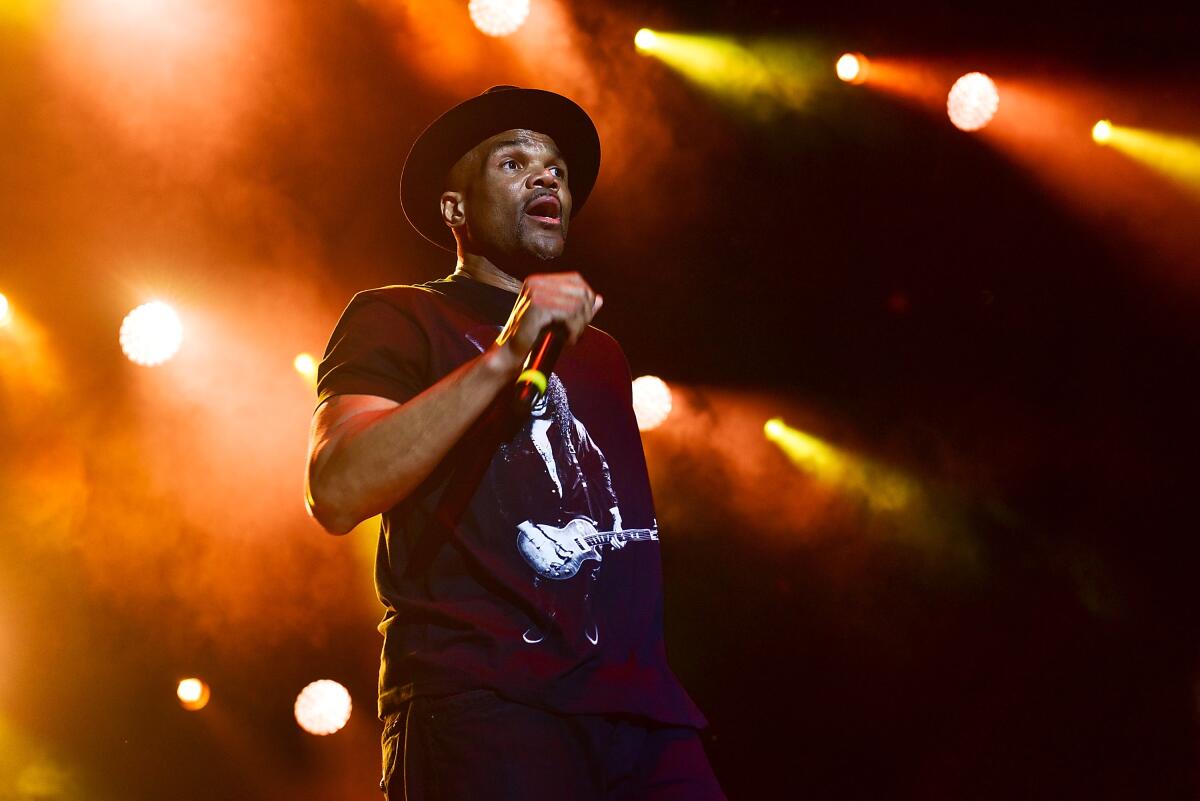
Last July, Juvenile — along with Cash Money cohort producer Mannie Fresh and No Limit lyricist Mia X — reworked his classic 1998 single “Back That Thang Up” into “Vax That Thang Up” as part of a dating app campaign to get people vaccinated.
However, there has been pushback. “I’ve gotten cursed out and even death threats,” confesses D.M.C. of some of the reactions to his COVID-19 vaccine outreach. “I received [criticism] from the general public and hip-hop people. I’ve been called a sellout, that I’m killing my people… It got really deep.”
To be clear, anti-vaccine rhetoric is not exclusive to the hip-hop world. Rock guitarist Eric Clapton, a vocal critic of pandemic mandates and shutdowns, has claimed that he suffered a “disastrous” health experience after receiving the COVID-19 vaccine.
John Rich, of the country music duo Big & Rich, said in a June 12 tweet, “Do you think Fauci will pick the top bunk, or the bottom bunk in his cell at GITMO? I think he’s a bottom bunk kinda guy,” a clear homophobic shot at Dr. Anthony Fauci, the director of the U.S. National Institute of Allergy and Infectious Diseases and leading voice of the White House’s COVID-19 response team.
Eric Clapton, one of rock’s most vocal COVID-19 skeptics, says he reserves to right to cancel any show where vaccination becomes a condition of attendance.
Pop star Doja Cat tested positive for COVID-19 last year after downplaying it as being just like the flu. And comedian Rob Schneider, podcast host Joe Rogan, NBA star Kyrie Irving, Buffalo Bills wide receiver Cole Beasley and Fox News evening hosts Tucker Carlson and Laura Ingraham have all been called out for spreading misinformation about COVID-19.
Some of hip-hop’s wariness toward the COVID-19 vaccine has deep roots. Since its Bronx, New York, birth in the ‘70s, the genre has thrived on non-conformity.
“You see that a lot in the older hip-hop generation,” says Vibe editor in chief Datwon Thomas. “They are the ones who are more closely connected with the civil rights era. There is trepidation in believing in institutions like the government and the courts. When you put all that in the rebellious nature of hip-hop, you get some rappers questioning the vaccine. It turns into, ‘Why should we trust them?’”
At least 400,000 Americans have received a COVID-19 booster shot and nearly 1 million have scheduled appointments, White House officials say.
There are some individuals who are taking a more proactive approach. Promoters Lin Rowe and Jerry Schools pulled together the all-star rap tour Legendz of the Streetz, which kicks off Sept. 30 at Augusta, Ga.’s James Brown Arena, with more dates to be added after the new year. The ambitious 10-city trek features nine hip-hop acts, including headliners Rick Ross, Gucci Mane and Jeezy, who received his second dose of the COVID-19 shot in April.
“Each of the buildings that we are going to across the country have their own COVID standards and protocols that we must comply with,” Rowe says. “So we have to make sure that we are in compliance of the state, local and federal mandates and what the buildings are requiring, which could be vaccination, which could be proof of PCR negative testing in a given amount of hours prior to the show.”
“It was almost an impossible feat to overcome, but we did it right,” his partner Schools adds.
Even for an art form that thrives on chest-beating statements, that’s no hyperbole.
“In Atlanta, all of our fans and patrons at State Farm Arena must wear masks,” Lin says with pride. “It’s not negotiable. We’ve talked to all the artists and they are willing to take part in the COVID protocols. We want to make the environment as safe as possible.”
More to Read
The biggest entertainment stories
Get our big stories about Hollywood, film, television, music, arts, culture and more right in your inbox as soon as they publish.
You may occasionally receive promotional content from the Los Angeles Times.
